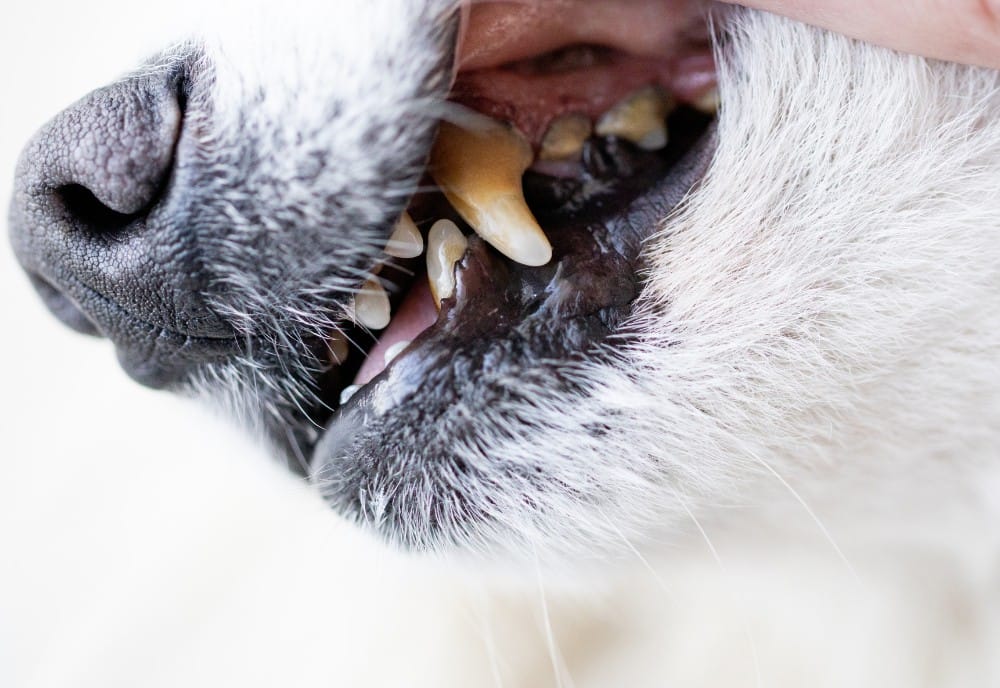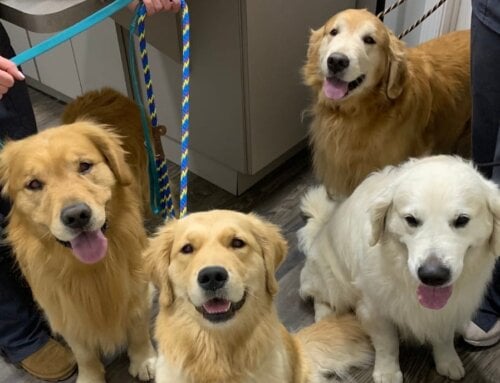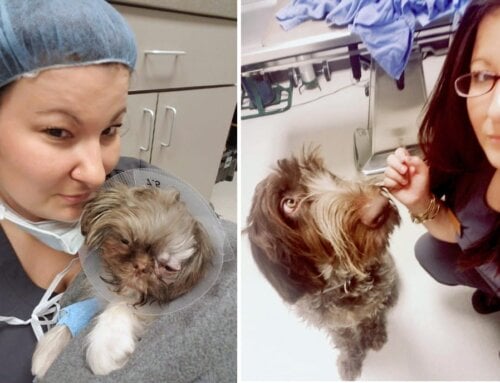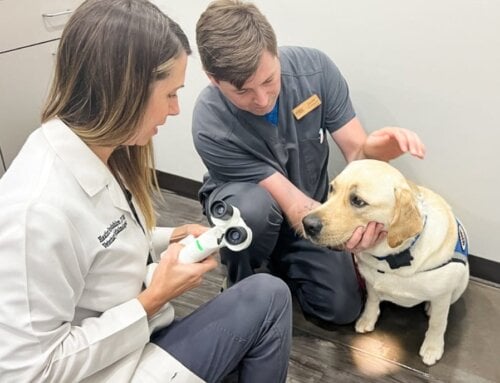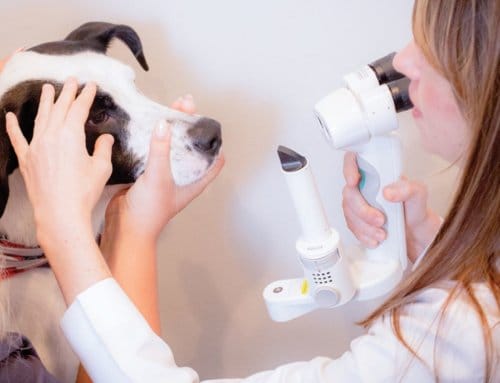The Connection between Eye Disease and Dental Health
By Dr. Brianne Radulovich, DVM, Comparative Ophthalmology Resident
Your pet’s bad breath may mean more than having to brush their teeth. This can signify deeper disease and lead to serious complications, including ocular disease.
The oral cavity is closely associated with the orbit or the eyeball socket. In severe cases, dental disease, commonly tooth root abscesses, can extend to affect the tissues surrounding the eyes. Walled-off pockets of inflammation and infection can form behind the eye, known as a retrobulbar abscess. As a result, the eye is pushed forward and gives the appearance of a “bug” eye. Further diagnostics, such as ocular ultrasound, can be used to visualize pathology behind the eye, and treatment of retrobulbar abscesses aims at oral antibiotics, anti-inflammatories, and, most importantly, addressing the underlying dental disease.
Dental disease also harbors bacteria. In severe cases, these bacteria can translocate throughout the body and end up causing inflammation within the eye, called uveitis. Normally, there is a blood-eye barrier, similar to the blood-brain barrier, which protects the eyes from outside influences. However, this barrier can weaken when there is ocular disease or following eye surgery. For these reasons, we recommend performing a dental cleaning prior to elective ocular surgeries, most notably cataract surgery. By reducing the number of bacteria on the teeth, we can reduce the risk of secondary complications and promote faster healing so that your pet can get back to living their best life with you.
There are many more benefits to performing routine dentals. We welcome you to share your stories! Healthy teeth save eyes, so let’s see your pets’ pearly whites!
Tips for healthy pet teeth
According to the American Veterinary Medical Association, brushing your pet’s teeth on a regular basis is the single most effective thing you can do to keep their teeth healthy between dental cleanings. It may reduce the frequency or even eliminate the need for periodic dental cleaning by your veterinarian. Daily brushing is best, but it’s not always possible. Even brushing several times a week can be effective. Most dogs accept brushing, but cats are more resistant. Just keep trying and keep on brushing!
Visit our virtual library to learn more about Uveitis
